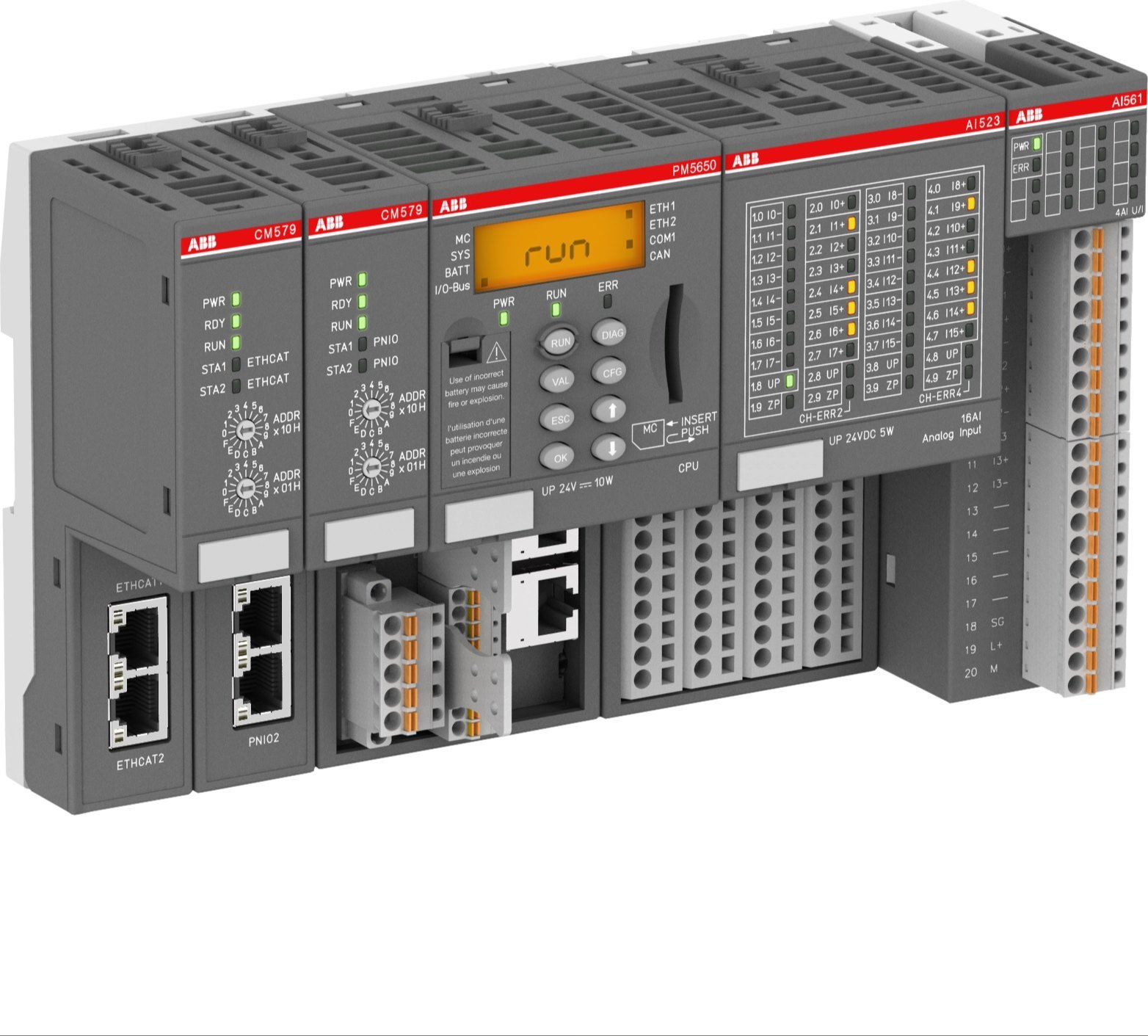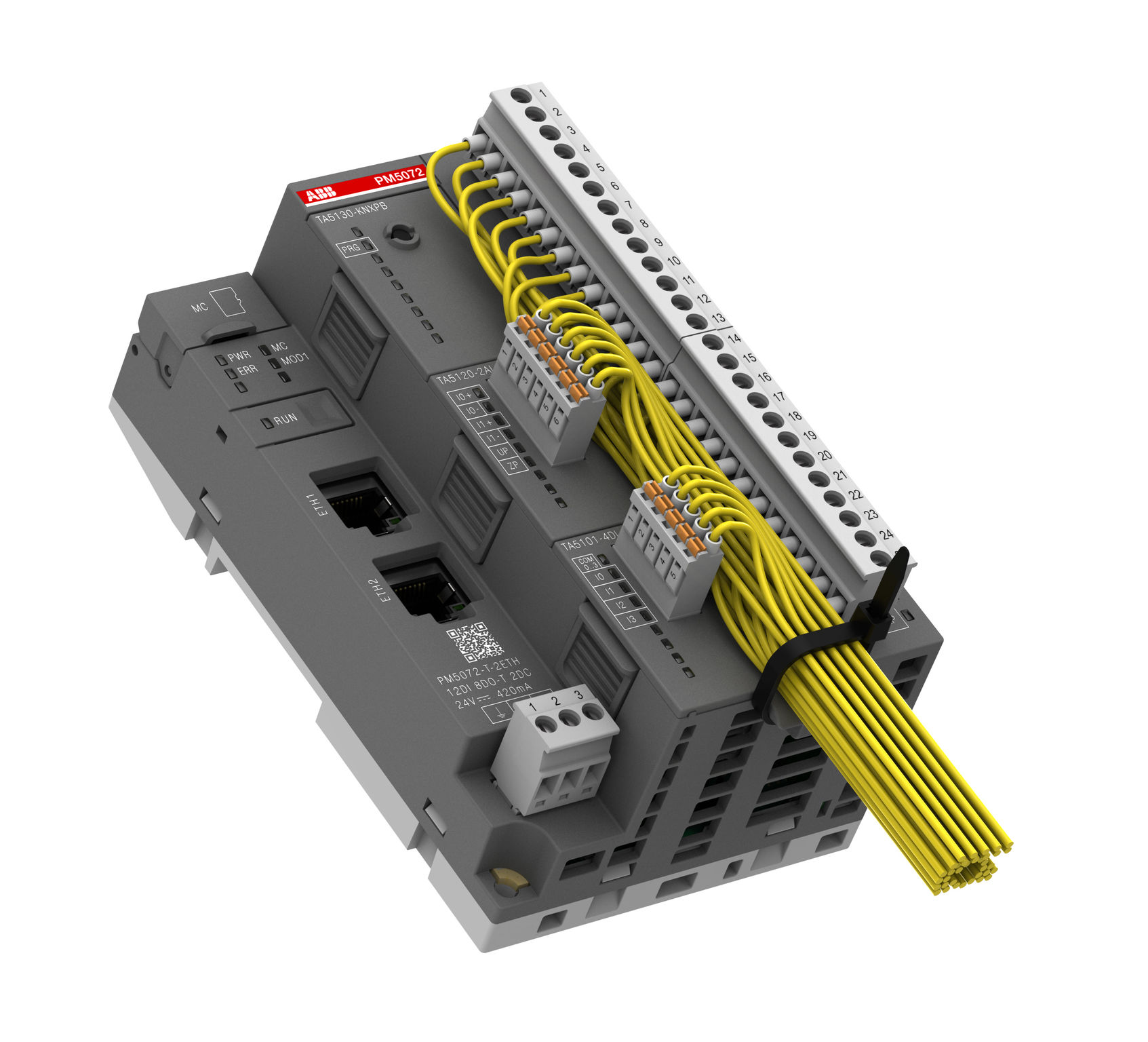
Advantages of ABB PLC
1.Flexibility
ABB PLCs offer a high degree of flexibility in programming, allowing users to customize control logic based on specific industrial processes.
They support various programming languages, including ladder logic, function block diagrams, and structured text, providing versatility for different applications.
2.Reliability
ABB is known for producing robust and reliable PLCs, ensuring stable operation in industrial environments.
The hardware components of ABB PLCs are designed to withstand harsh conditions such as extreme temperatures, vibrations, and electromagnetic interference.
3.Scalability
ABB provides a range of PLC models catering to different complexities and sizes of industrial processes. This scalability allows users to choose the right PLC for their specific needs.
Expansion modules and communication options make it easy to scale ABB PLC systems as industrial processes grow or change.
4.Integration Capabilities
ABB PLCs can seamlessly integrate with other ABB automation products, such as variable frequency drives, motion controllers, and human-machine interfaces (HMIs).
They also support communication protocols like OPC, Modbus, and Ethernet/IP, enabling integration with a wide range of third-party devices.
5.Advanced Diagnostics
ABB PLCs often come equipped with advanced diagnostic features that facilitate troubleshooting and maintenance.
Real-time monitoring and error detection help in identifying issues promptly, reducing downtime and enhancing overall system reliability.

6.Remote Monitoring and Control
Many ABB PLCs support remote monitoring and control capabilities, allowing users to access and manage industrial processes from a central location.
This feature enhances efficiency and reduces the need for on-site interventions, particularly in geographically dispersed industrial setups.

7.Energy Efficiency
ABB PLCs contribute to energy efficiency in industrial processes by enabling precise control over equipment and optimizing energy consumption.
Integration with ABB’s energy management solutions further enhances the ability to monitor and improve energy efficiency.
8.User-friendly Interface
ABB PLCs typically come with user-friendly programming software that simplifies the development and modification of control logic.
Intuitive interfaces and visualization tools make it easier for operators and maintenance personnel to interact with the system.
Disadvantages of ABB PLC
1.Cost
ABB PLCs, being high-quality industrial automation products, often come with a higher initial cost compared to some alternatives.
The overall cost of ownership, including maintenance and upgrades, can be a significant consideration for budget-conscious industries.
2.Learning Curve
Programming and configuring ABB PLCs may have a steeper learning curve for beginners, especially those new to industrial automation.
Training and expertise are required for efficient utilization, which may pose challenges for smaller organizations with limited resources.
3.Complexity for Small-scale Applications
ABB PLCs, with their extensive features and capabilities, may be overkill for small-scale applications with simpler automation needs.
The complexity of the system might lead to unnecessary expenses and complications for projects that do not require advanced functionalities.
4.Limited Third-party Compatibility
While ABB PLCs support various communication protocols, there might be limitations in seamless integration with certain third-party devices.
Compatibility issues may arise when interfacing with non-ABB components, necessitating additional effort and potential compromises.
5.Maintenance Costs
While ABB PLCs are designed for reliability, maintenance costs can be higher due to the need for specialized knowledge and replacement parts.
Regular updates and preventive maintenance might be essential to ensure optimal performance, contributing to ongoing operational expenses.
6.Size and Footprint
ABB PLCs, particularly for large-scale applications, can be physically larger and may require more space in control cabinets.
The size and footprint of the PLC hardware could be a consideration in facilities where space is a premium.
7.Dependency on ABB Ecosystem
ABB PLCs often work best within the ABB automation ecosystem. Users heavily invested in ABB products may benefit from seamless integration, but those seeking diversity might find limited interoperability with non-ABB systems.
8.Rapid Technological Advancements
The field of industrial automation is rapidly evolving, with continuous advancements in technology. ABB PLC users may face challenges in keeping up with the latest features and capabilities without frequent updates and upgrades.
In conclusion, ABB PLCs offer a range of advantages, including flexibility, reliability, and advanced features, making them suitable for various industrial applications. However, potential drawbacks such as cost, complexity, and limited third-party compatibility should be carefully considered based on the specific needs and resources of the user. It’s essential for organizations to weigh these pros and cons to make informed decisions when selecting automation solutions for their industrial processes.